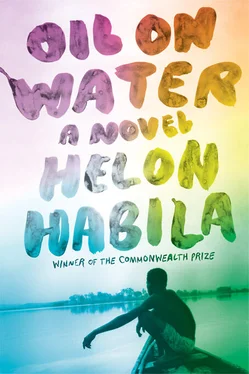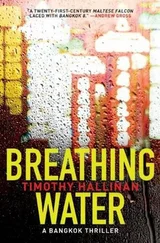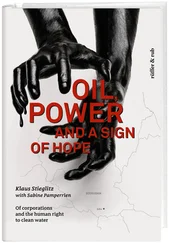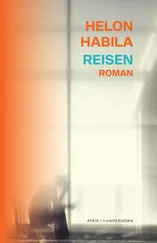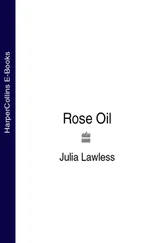— Drink.
I drank.
I drank to make myself insensitive to the accusing ghost eyes in the light’s fringes, eyes whose glow seemed to pierce through my body to my very soul, and with every mouthful, every shovelful, I grew as excited as Zaq, and in my mind I repeated his phrase: Our job is to find out the truth, even if it is buried deep in the earth. I giggled. Already I could see the inch-high headlines: KIDNAPPED BRITON DISCOVERED IN SHALLOW GRAVE. Not as aesthetically accomplished as his nuts-and-bolts headline, but, word for word, much more compelling.
It was a shallow grave, too shallow to cover a body, I saw that right away. In my mind I had already braced myself for the smell of rotting flesh, the sight of a worm-infested corpse, but all we found was a stone. A huge round boulder sitting insensate, incognizant, like a corpse. Whoever made the false grave had a sense of humor, it seemed. Zaq surged forward when my shovel hit the stone with a dull metallic sound that resounded like a gunshot in the quiet night air. I collapsed onto the mound of earth I had created, breathing noisily through my mouth, the warmth from the fresh earth rising up my body, soothing, reassuring me that the punishing dig was over. I watched him put down the lamp and, like a dog unearthing evidence, he got down on his hands and knees and carefully pushed aside the sandy soil around the stone.
— Take pictures.
I took pictures.
— You knew there was no body?
We headed back to our hut.
— I suspected.
I could feel the exhilaration in his voice, in his jaunty steps. In the room, after we had washed and settled on our mats, he kept tossing and turning and getting up to walk up and down. At last he lay down and closed his eyes.
— I’d better get a good rest. Tomorrow we leave. We may not be safe here anymore.
— I don’t think the priest would do us any harm. .
— No, not the priest, but what if he’s being watched?
He was lying on his back, staring up at the roof, taking occasional swigs of his whiskey.
Finally, he blew out the lamp.
— Get some sleep, Rufus.
— Your friend, I am sorry to say, is dying.
The Doctor was an overweight cherub and when he breathed he did so with painful effort through his mouth; the wheezing and spluttering sound accompanying it was loud and unpleasant. He was dressed in the same military fatigues and boots as before, but this time without the grubby white jacket, and whenever he leaned forward the shirt buttons across his fraught midsection threatened to pop. The shirt was wet under the armpits. He smoked incessantly, and as he spoke his words came out shrouded in cigarette smoke. How did he manage, in the midst of such aridity and want and barrenness, to look so fat, so gross? But as he spoke, and as I listened, I soon forgot his physical appearance. He was intelligent and sympathetic, philosophical almost, his tiny eyes seeming to probe deep into his listener’s soul, searching for whatever ailment was plaguing him.
Out of a vague sense of decorum he had led me out to break the news, away from the feverish eyes of the soldiers, and from the sleeping Zaq. He offered me a cigarette and when I shook my head he nodded approvingly. Now we were walking back and forth on the edge of the water, and we kept swatting at the midges and flies that flew out of the grass at our feet.
— What exactly is wrong with him, Doctor?
— Have you ever heard of dengue fever?
I hadn’t.
— It’s a hemorrhagic fever, very dangerous. It kills very quickly if not treated immediately.
— Is that what he has?
— No. It’s a similar strain, quite new, still nameless. I’ve come across it only two or three times before in this area. Bugs and the water, you know.
— You mean he won’t live?
He avoided my perplexed gaze and waved his hand around, embracing the whole visible universe in his gesture.
— Somewhere in these godforsaken waters, that’s where he must have picked it up. There’re plenty of bugs flourishing here. And he was in pretty bad shape to begin with. I suspect his liver is gone already.
He wiped his sweaty forehead, giving me a full view of his armpit. I felt an irrational hatred for him and nothing would have given me greater pleasure than to puncture his overfed middle and calmly watch whatever stuffing was inside pour out.
— Well, you have to do something about it.
— I’m afraid I can’t. Not with the tools I have here. You’ll have to take him back to Port Harcourt, to a proper hospital.
— I’ll talk to the Major. We need transportation immediately.
— You could try, but I doubt he’ll help you in any way. He’s not a very obliging kind of person, I’m sorry to say. Do you know, I saved his life, that’s how I ended up here as the doctor, and yet even I can’t be sure of him at any time. Mercurial, that’s what he is. Unpredictable. It’s the oil and the fighting. It affects everyone in a strange way. I’m going to write a book on that someday. I’ve been in these waters five years now and I tell you this place is a dead place, a place for dying.
He pointed at the faraway orange sky. — Those damned flares. There weren’t that many of them when I first came here. Sometimes I feel like I’ve been here all my life.
— Well, then, what are you saying, what should I do? My friend is dying. Tell me what to do.
— Ah, it is not easy. .
Happy to find a listening ear, he grew talkative. I could imagine how he must have spent his days here, hunched over his beakers and blood samples, his speculative, philosophical observations met by the groans and whimpers of soldiers.
A leaner, more idealistic man, he had been posted to a village not far from here five years ago, fresh from medical school. The old doctor, who was about to retire, met him at the boat and had boys take his bags to his new quarters, a spacious hut near the dispensary. The next day the old man showed him around the village and the two-room dispensary. The village consisted of not more than twenty families, and each family’s ailments had been neatly recorded and filed in the old doctor’s shaky but neat handwriting and stored in alphabetical order in files kept in two formidable-looking iron filing cabinets in the back room.
— It was a small village. At first I was lonely, and daily I thought of nothing but how to work my way out of that posting, but I soon grew fond of the place and the people. Anyway, the old doctor, before he finally bowed out, took me from door to door, and to the neighboring communities, introducing me to the people. I set up mobile clinics in my boat, I held educational classes in churches and schools, talking to teachers and pastors and community leaders. But I soon discovered that the village’s chief discontent was not over their health; they were a remarkably healthy people, actually. One day an elder looked me in the face and said, I am not ill. I am just poor. Can you give me medicine for that? We want that fire that burns day and night. He told me that, plainly, pugnaciously.
— Well, as if in answer to his request, two years after my arrival in the village, oil was discovered. Be careful what you wish for, they say. Yes, just on the edge of the village, by the water, there was oil in commercial quantities. The villagers feasted for weeks. They got their orange fire, planted firmly over the water at the edge of the village. Night and day it burned, and now the villagers had no need for candles or lamps, all they had to do at night was to throw open their doors and windows and just like that, everything was illuminated. That light soon became the village square. At night men and women would stand facing it, lost in wonder, for hours, simply staring till their eyes watered and their heads grew dizzy. Village meetings, which used to take place early in the mornings on Saturdays in one of the school classrooms, now took place at night under the orange fire: the elders, in their wrappers and holding their walking sticks, would arrange their chairs in a semicircle and hold forth. A night market developed around that glow, and every evening women brought their wares. Some came from the neighboring villages, they bought and sold, they set up portable iron hearths and fried akara and fish, which they sold to happy children under that fire. And when Brother Jonah came back from the city, or, as he described it, from the belly of the big whale, after being away for three years, it was under the orange glow that his congregation met every Sunday night. They’d dance, their faces raised up to that undying glow, singing their thanks and joy, their voices carrying for miles over the water. They called it the Fire of Pentecost. I don’t know what that means exactly, but it made them very happy. They said it was a sign, the fulfillment of some covenant with God.
Читать дальше
